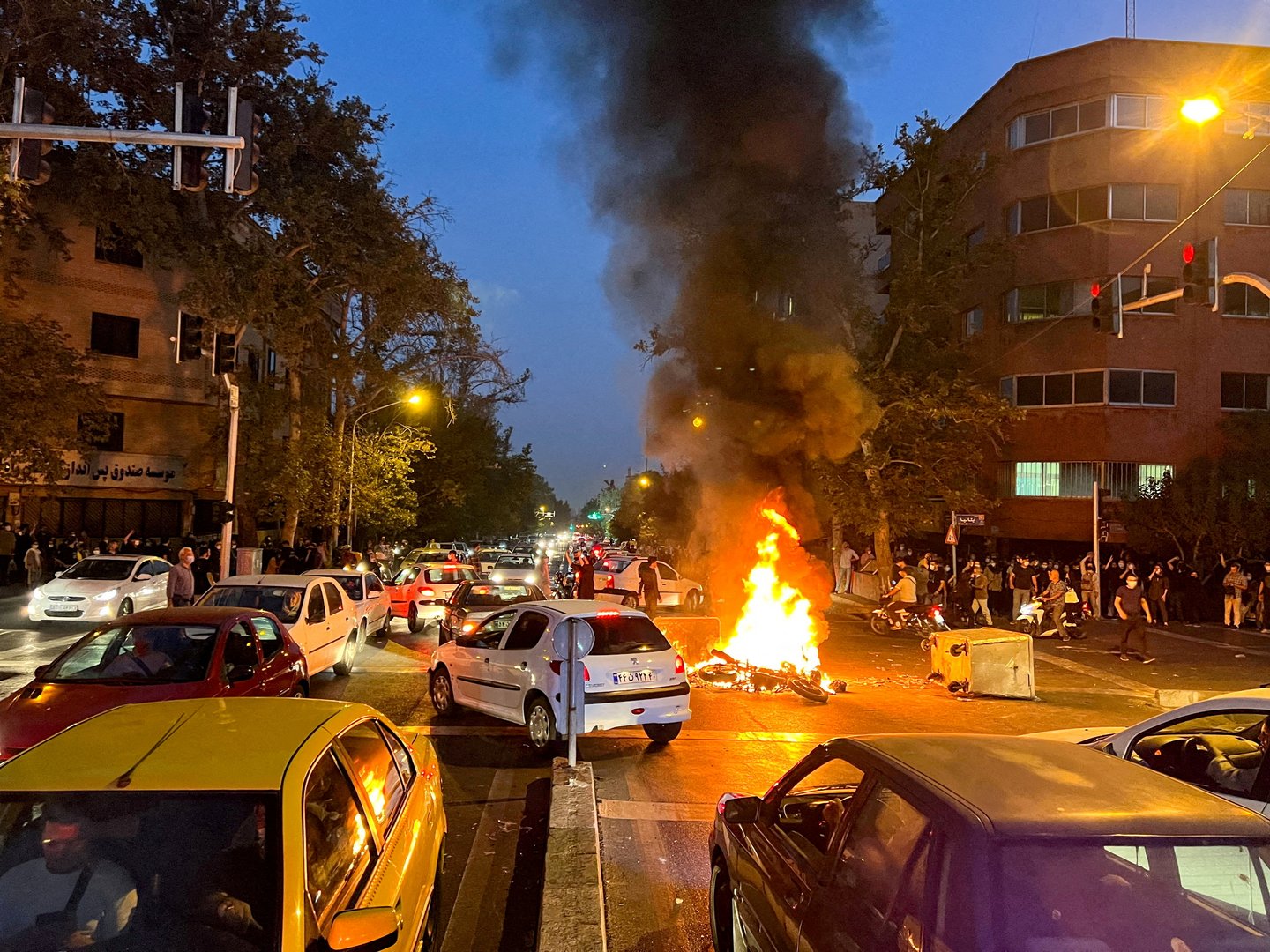2022 in review: From Russia to Iran, we simply copy-paste the narratives of the main news networks
A couple of weeks ago, during the foreign news segment on a local television channel – which won’t be named to spare them the embarrassment – a newsreader said that Mahsa Amini died due to the abuse she suffered at the hands of Iranian police. The line was delivered quite matter-of-factly, no qualifications.
I had to do a double take to make sure I heard right. Note that this was in early December, some three months after the story broke. Long before this, Iranian authorities had released video footage showing Amini losing consciousness and dropping to the floor while in custody at a detention centre in Tehran. The footage is clear – no one touched the young woman. Later, authorities said a post-mortem found no signs of battery on Amini.
Regardless of what really happened, the point is that we had visual and other evidence directly contradicting the mainstream narrative about the circumstances surrounding Amini’s death. And yet the Cypriot media outlet disregarded it, not even mentioning it as a caveat in its reportage. Because the narrative was already cast in stone – Amini’s brutal treatment was what led to the demonstrations over the hijab. A simple, emotive storyline. “If it bleeds, it leads,” as they say in the news biz.
Cypriot news channels have been doing this forever – they simply copy-paste a story from a foreign network or ‘reputable’ media publication and run with it. Vetting of news from overseas is virtually non-existent. No due diligence necessary.
We’ve seen this play out especially with the coverage of the Ukraine conflict. Tropes prevalent in foreign news media just get duplicated here, repeated ad nauseam, until they become ‘fact’. No matter how patently absurd they may be, or if they’ve since been debunked. The propaganda on Ukraine has set a new standard for propaganda and spin – far surpassing the previous benchmark during the Syria conflict.
And the message boils down to this: Russia bad, Ukraine good. We Stand With Ukraine, stay on script.
The Ghost of Kiev? No problem – just copy-paste. Snake Island? No problem – just copy-paste. Russia blew up its own pipelines? No problem – just copy-paste. Russia is shelling its own positions at the Zaporizhzhia nuclear power plant? No problem – just copy-paste. Alexander Dugin is ‘Putin’s Brain’? No problem – just copy-paste.
You get the idea. And Cypriot media oblige.
What of the well-documented presence and operation of neo-Nazi groups within Ukraine? Well, what of it? Easy – we’ll just scrub the record. Or if we can’t do that, we’ll ‘forget’ to mention them. Into the memory hole they go. Here in Cyprus, some hubbub got generated when a purported Azov soldier appeared in a video link-up after Ukrainian leader Volodymyr Zelenskiy addressed parliament. But after that episode, it went quiet. Short attention spans. We Stand With Ukraine, stay on script.
The latest attempt at whitewashing Ukraine’s far-right problem came with an article in Forbes dated December 16. Penned by David Axe, the item goes to pains to tell us how “Ukraine Deradicalised Its Extremist Troops.” Except when you read it, it doesn’t really tell you how. It merely states that ‘deradicalisation’ – whatever that means – has happened.
It’s all good folks – Ukraine’s ultra-nationalists have exorcised their inner Nazi, so we can go back to feeling good about sending them guns and paying their salaries.
But Axe is not done yet. He saves his best zinger for last: “Expect Russian propagandists to shout ‘Nazis!’ every time the 98th Azov Battalion makes a move. Don’t believe it.”
Axe knows he’s doing perception management. Because it’s all about the optics.
Have neo-Nazi groups in Ukraine been ‘reformed’? According to an Al Jazeera article dated February 28 – so not that long ago – and I quote,” Ukrainian fighters grease bullets against Chechens with pig fat.” And the item also informs us that “Despite being integrated into the official military, Azov fighters have reportedly continued to wear the Wolfsangel insignia used by a number of Nazi divisions during WWII.”
But are Cypriot media interested? Not in the least. We Stand With Ukraine, stay on script.
The ‘Putin’s Brain’ meme is particularly amusing. Hyped up into some kind of Rasputin figure – Dugin is the puppet master lurking in the shadows, Putin’s handler. Typical caricaturising of Russia and its leader. The low-hanging fruit sells.
Nuance? Who needs nuance? Who wants to know boring details, like for example that Dugin wields such ‘malign influence’ on the Kremlin, that in 2014 he was stripped of his sinecure at Moscow State University shortly after making inflammatory remarks on the Ukraine situation. Or that he got banished from Russian mainstream media, turned into a persona non grata. Or that not a single photo exists anywhere of him with Putin, nor any record whatsoever that the two ever spoke or met. But other than that, he’s ‘Putin’s Brain’. Because someone, somewhere ‘decided’.
And truisms like these get picked up on, regurgitated a thousand-fold during chitchat sessions in cafes and restaurants, feeding the cycle of self-contented affirmation.
Fun brainteaser for the New Year: how would the gaslit know that they’re gaslit?







Click here to change your cookie preferences